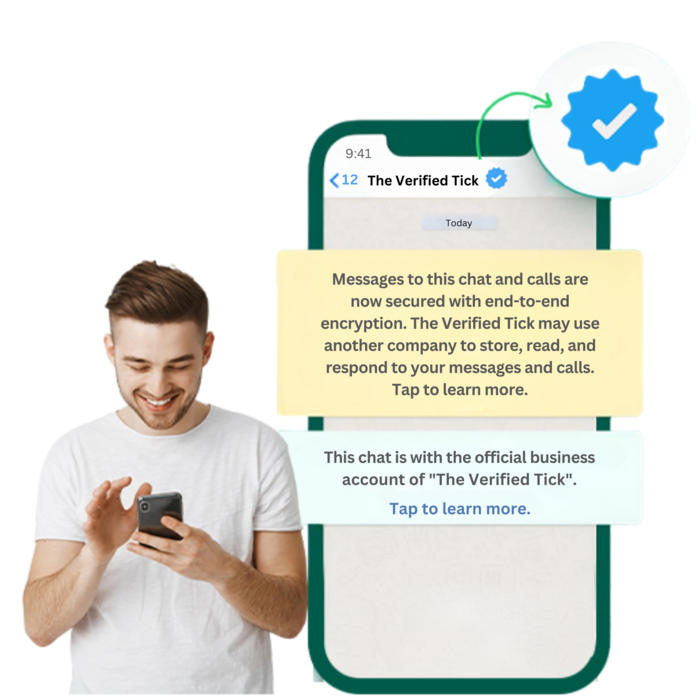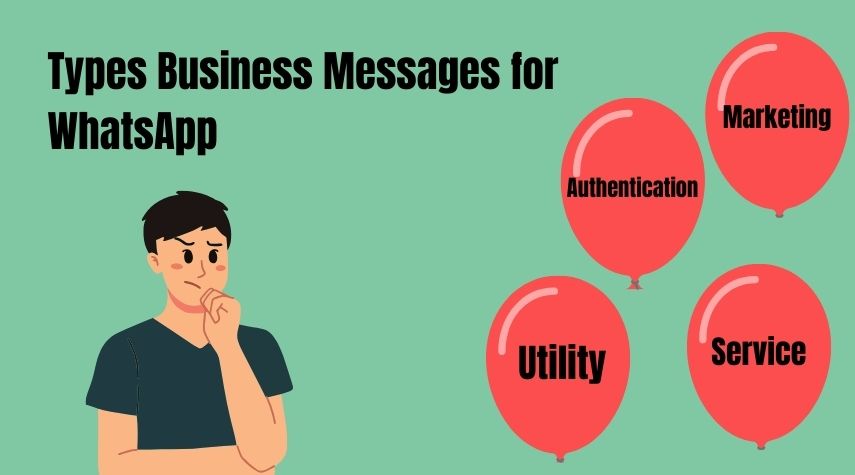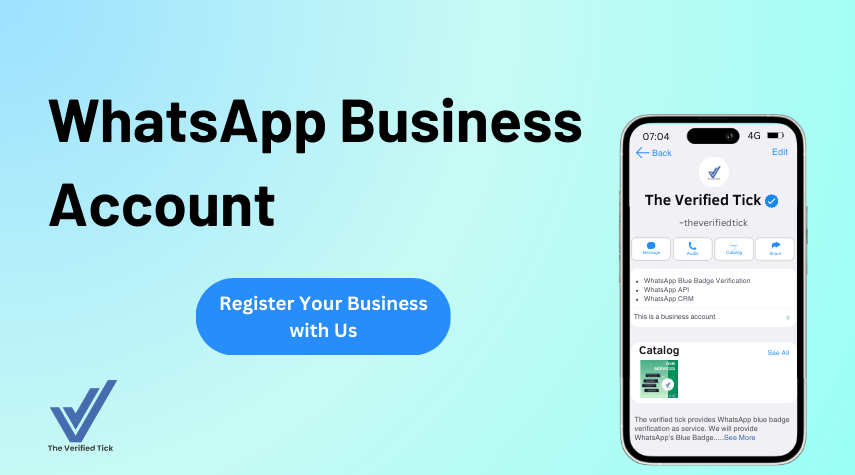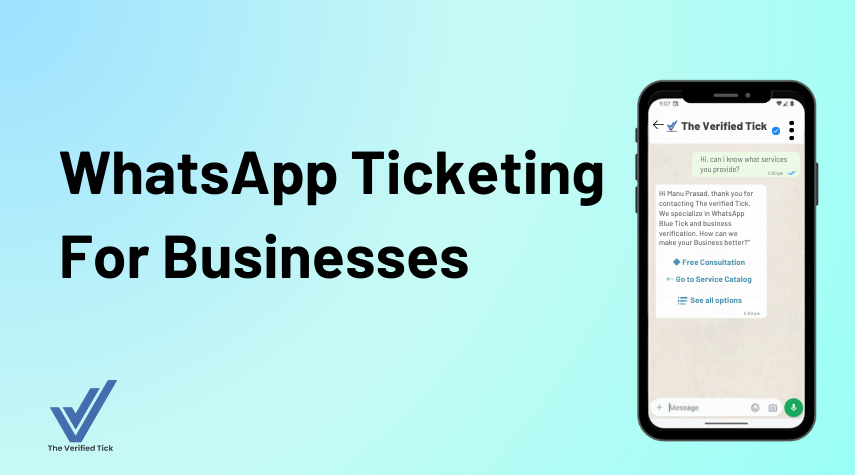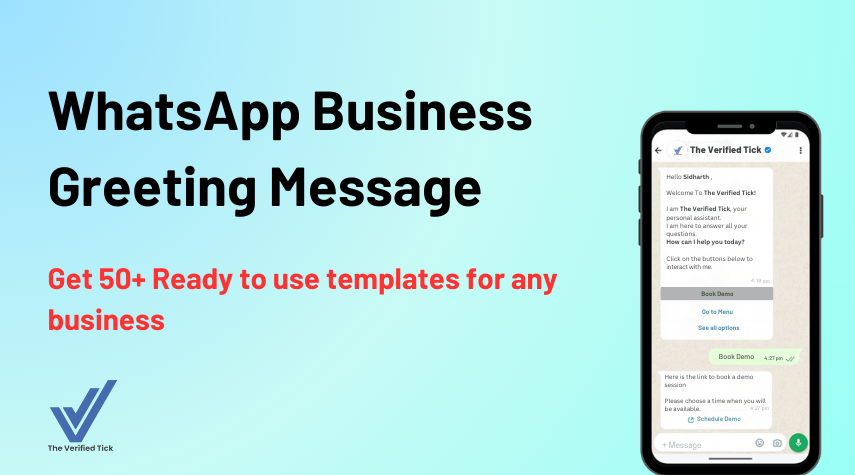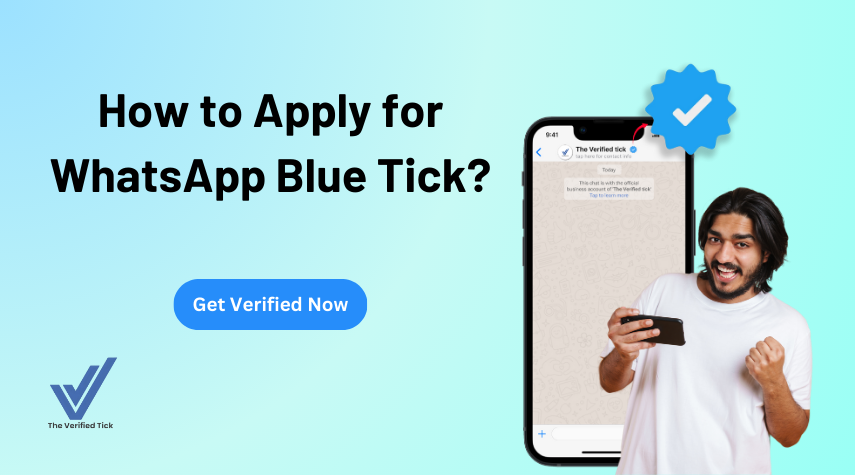WhatsApp has become most used platform for communication. And Businesses have started using WhatsApp to connect with their customers to assist purchasing, providing updates and many more services through WhatsApp. Since it is a personal messaging app, this makes people feel like they are treated personally. So that businesses have a great chance in building their brand value and credibility.
Meta has categorized business messages on WhatsApp, so that businesses can use the features efficiently to achieve their goals and avoid misusing the features. Meta also charges businesses by categorizing the messages they sent. In this blog you will be learn about different types of WhatsApp business messages and how to use this efficiently.
Understanding Conversation Categories
To successfully utilize WhatsApp for business functions, it is crucial to organize conversations into four main categories:
Marketing Conversation:
Aim: To advertise products, services, or promotions.
Instances: New merchandise releases, specific marketing efforts, reminders for abandoned carts.
Advantages: Enhanced brand recognition, boosted sales, and better customer interaction.
Utility Conversation:
Objective: To offer practical information and updates.
Examples: Subscription verifications, purchase and shipping notifications, account notifications, feedback questionnaires.
Advantages: Improved customer experience, higher user satisfaction, and greater loyalty.
Authentication Conversation:
Objective: To confirm user identity and guarantee safe engagements.
Sample: Account validation, account retrieval, safety notifications.
Advantages: Secured user accounts, improved security, and increased brand trust.
Service Conversation:
Objective: To respond to customer questions, solve problems, and offer assistance.
Examples: Addressing customer inquiries, resolving problems, providing support.
Detailed Breakdown of Conversation Categories
Marketing conversation
Marketing messages are designed in a way to promote products, services and offers. Their focus is to create interest, increasing sales and to build brand awareness. Using WhatsApp campaigns, your business can be benefited with:
High open rates: Unlike emails, your WhatsApp business messages can bring significantly high open rates. Ensure that your messages are reaching the right set audience.
Real-time engagement: With WhatsApp you can engage with customers conversation in an instant, enabling you to respond to customer inquiries, address concerns and provide timely support.
Personalized Communication: Utilizing WhatsApp's features, you can tailor conversation by yourself, so that you can send business messages to individual preferences, behaviors, building strong connections and driving high engagement rates.
Utility conversation
Utility messages are used by businesses that needs to provide updates, confirmations or alerts. These conversations so important for customers so that they could keep their customers informed and engaged. By sending timely utility messages, you can enhance user experience and build stronger relationships.
Here are some examples of utility messages:
Opt-in Confirmations: These communications confirm user agreement and adhere to data protection laws.
Updates on Orders and Deliveries: These notifications offer current information regarding order statuses, shipping details, and expected delivery dates.
Account Notifications/Alerts: These communications inform users of significant updates, including password changes, payment prompts, or security concerns related to the account.
Feedback Surveys: These communications collect important customer insights to enhance products, services, and the overall user experience.
Authentication Messages
Authentication messages are conversation that we use to ensure the security of user accounts and preventing unauthorizes access. By having good authentication measures, businesses can protect sensitive information and maintain the security.
Here are some examples of authentication messages:
Account Verification: These messages confirm user identity via phone number or email validation.
Account Recovery: These notifications help users regain access to their accounts via secure verification methods.
Security Notifications: These alerts inform users about possible security risks, including unusual login attempts or data breaches.
Service Messages
Service messages are very much needed for providing timely and efficient support to the customers. By solving customer's issues, customer inquiries and providing assistance, businesses can create great customer experience and build lasting relationships.
Here are some examples of service messages:
Addressing Customer Inquiries: Quickly handling customer questions and issues.
Resolving Technical Problems: Offering detailed instructions or virtual support.
Providing Assistance for Products or Services: Helping customers with product use, returns, or exchanges.
Crafting a meaningful business message
Marketing Messages
To develop impactful marketing communications, ensure they are succinct and understandable. Utilize compelling calls to action to promote desired actions, like clicking on a link or completing a purchase. Customizing interactions is essential, so incorporate the client's name and mention particular details to enhance the personal connection.
Utility Messages
In utility communications, promptness is essential. Offer prompt updates to keep customers aware of their order status or any changes to their accounts. Reword the given text while maintaining the same word count, utilizing straightforward language and avoiding complex terms for better understanding. Provide straightforward guidance to assist customers with required tasks.
Authentication Messages
When creating authentication messages, focus on security and comprehensibility. Steer clear of unclear or vague phrases and assure clients that their data is secure. Offer straightforward instructions to assist customers in navigating the verification or recovery procedure.
Service Messages
For service messages, quickly reply to customer questions and demonstrate understanding of their circumstances. Provide effective solutions to their issues and assist them in navigating the resolution process.
Commonly practiced method
To uphold a professional appearance, refrain from using slang or excessively informal language. Utilize correct grammar and punctuation to facilitate effective communication. Honor customer privacy and manage sensitive data with care. Employ emojis thoughtfully to enhance personality and emotion, but refrain from excessive use.
Utilizing WhatsApp Business features
Automated messages and Chat templates
With WhatsApp business you can access to tools to automate conversation and streamline communication. you can set up a trigger, so that automated messages can be triggered by specific events, such as order confirmation or appointment reminders. This can save you a lot of time and deliver timely messages.
Chat templates are ready-made conversation that can be tailored and dispatched to various users. This is especially beneficial for common questions, special offers, or customer service requests. Through the use of chat templates, companies can ensure uniformity and effectiveness in their interactions.
WhatsApp Business Application Programming Interface
For companies needing enhanced integration and automation, the WhatsApp Business API provides a robust solution. This API enables companies to incorporate WhatsApp into their current systems, allowing:
Automated message distribution: Create automated processes to dispatch business messages triggered by certain events.
Engaging messaging: Develop interactive dialogues with clients, featuring prompt responses and buttons.
Sophisticated analytics: Monitor essential metrics like message delivery rates and customer interaction.
Smooth customer assistance: Deliver effective and tailored customer service via WhatsApp.
Conclusion
By classifying business messages, companies can improve communication, elevate customer experience, and achieve superior business results. Marketing communications can create interest, boost sales, and enhance brand recognition. Utility messages can enhance customer satisfaction and loyalty by keeping customers updated and involved. Authentication messages help safeguard user accounts and block unauthorized access. Service messages can improve customer assistance and promote closer connections.
To maximize the benefits of WhatsApp, begin organizing your business messages right now. Utilizing the robust capabilities of WhatsApp Business allows you to boost communication effectiveness, improve customer interaction, and foster business development.



